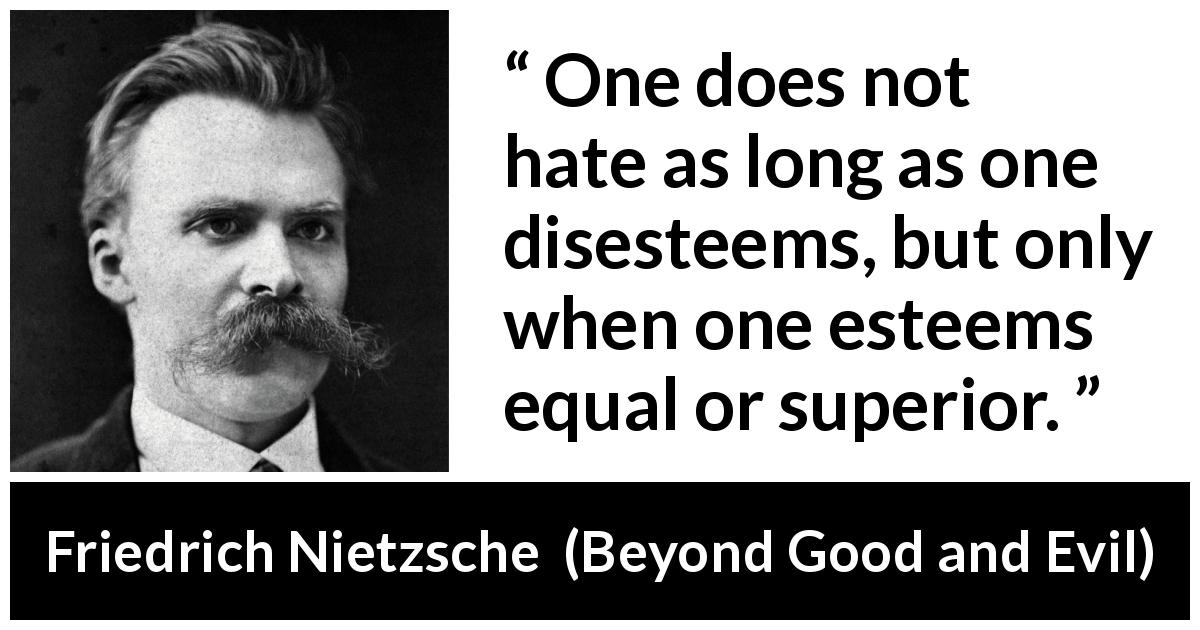

Nietzsche's ideas have had a profound influence on modern philosophy, literature, and culture, and the book remains a significant work in the history of Western thought. Overall, "Beyond Good and Evil" is a complex and challenging work that raises provocative questions about the nature of truth, morality, and human behavior. Nietzsche is also critical of the ideas of equality and democracy, which he sees as promoting mediocrity and suppressing individual greatness. He argues that individuals must create their own values and moral codes, rather than adhering to those imposed by society or tradition. Throughout "Beyond Good and Evil," Nietzsche is highly critical of conventional morality and ethics, which he sees as limiting and based on false beliefs. Somethings like love/those that are treasured by us happen ahead of good and evil. The majority view love as something of great value to people. Part Three explores the idea of the will to power and its importance in human behavior. From one of his claims, actions done out of love are always beyond good and evil it is evident that love is among the strongest sensations an individual can fell/experience. Part Two discusses Nietzsche's views on religion and the role of the priestly class in society.

Part One, for example, contains aphorisms that challenge the idea of absolute truth and the concept of free will. The book is divided into nine parts, each of which explores a different topic related to Nietzsche's philosophy. The book is a collection of aphorisms and essays, and it reflects Nietzsche's critical approach towards traditional morality, religion, and philosophy. "Beyond Good and Evil" is a philosophical book written by the German philosopher Friedrich Nietzsche, first published in 1886.


 0 kommentar(er)
0 kommentar(er)
